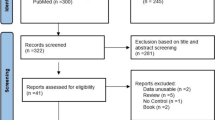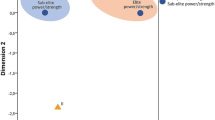Abstract
Human physical performance is a highly complex phenotype that is influenced by various factors. In particular, genetic factors related to muscle fiber type, bone density, muscle performance, and metabolic processes are known to contribute in varying degrees to athlete status and physical performance in various ethnic groups. To investigate the relationship between these genetic factors and physical performances, we genotyped five genetic polymorphisms (ACE Ins/Del, ACTN3 R577X, ER-α C/T, GSTM1 null/present, and GSTT1 null/present) in 111 Korean athletes and 145 controls. We examined genotype and allele frequency differences between athletes and control groups, along with the odds ratios, using Chi square. One-way analysis of variance (ANOVA) was used to test the significance of differences in continuous variables between the multiple genetic polymorphisms and physical performance test results. The GSTM1 polymorphism exhibited a highly significant association in athletes (p = 0.017). Combined analysis of GSTM1 and GSTT1 also revealed significant differences between athletes and controls (p < 0.05). In the analysis of physical performance within athletes, the ER-α gene polymorphism was associated with the sargent jump and the side-step (p < 0.05), and the GSTM1 gene polymorphism was significantly associated with the 20 m shuttle run and sit-up (p < 0.05). Thus, our data imply that GSTM1 and ER-α gene polymorphisms were associated with physical performance in Korean athletes, although functional studies with larger sample sizes are necessary to elaborate upon these findings.
Similar content being viewed by others
References
Ahmetov II, Fedotovskaya ON (2012) Sports genomics: current state of knowledge and future directions. Cell Mol Exerc Physiol 1:e1
Ahmetov II, Druzhevskaya AM, Astratenkova IV, Popov DV, Vinogradova OL, Rogozkin VA (2010) The ACTN3 R577X polymorphism in Russian endurance athletes. Br J Sports Med 44:649–652
Akhmetov II, Astranenkova IV, Rogozkin VA (2007) Association of PPARD gene polymorphism with human physical performance. Mol Biol (Mosk) 41:852–857
Akimoto AK, Miranda-Vilela AL, Alves PC, Pereira LC, Lordelo GS, Hiragi Cde O, da Silva IC, Grisolia CK, De Nazaré Klautau-Guimarães M (2010) Evaluation of gene polymorphisms in exercise-induced oxidative stress and damage. Free Radic Res 44:322–331
Chiu LL, Chen TW, Hsieh SS, Hsieh LL (2012) ACE I/D, ACTN3 R577X, PPARD T294C and PPARGC1A Gly482Ser polymorphisms and physical fitness in Taiwanese late adolescent girls. J Physiol Sci 62:115–121
Clarkson PM, Devaney JM, Gordish-Dressman H, Thompson PD, Hubal MJ, Urso M, Price TB, Angelopoulos TJ, Gordon PM, Moyna NM et al (2005) ACTN3 genotype is associated with increases in muscle strength in response to resistance training in women. J Appl Physiol 99:154–163
Costa AM, Crisostomo L, Ramalhinho A, Breitenfeld L, Costa AM, Pereira A, Dias A (2014) Glutathione S-transferase M1 and T1 genotypes in high-level swimmers. Int SportMed J 15:458–465
Cotton SC, Sharp L, Little J, Brockton N (2000) Glutathione S-transferase polymorphisms and colorectal cancer: a HuGE review. Am J Epidemiol 151:7–32
El Rifai N, Moustafa N, Degheidy N, Wilson M (2014) Glutathione S transferase theta1 and mu1 gene polymorphisms and phenotypic expression of asthma in Egyptian children: a case-control study. Ital J Pediatr 40:22
Erdfelder E, Faul F, Buchner A (1996) GPOWER: a general power analysis program. Behav Res Methods 28:1–11
Fisher-Wellman K, Bloomer RJ (2009) Acute exercise and oxidative stress: a 30 year history. Dyn Med 8:1
Grealy R, Herruer J, Smith CL, Hiller D, Haseler LJ, Griffiths LR (2015) Evaluation of a 7-gene genetic profile for athletic endurance phenotype in ironman championship triathletes. PLoS ONE 10:e0145171
Guilherme JPLF, Tritto ACC, North KN, Lancha AH Jr, Artioli GG (2014) Genetics and sport performance: current challenges and directions to the future. Revista Brasileira de Educação Física e Esporte 28:177–193
Hayes JD, Strange RC (2000) Glutathione S-transferase polymorphisms and their biological consequences. Pharmacology 61:154–166
Henskens LH, Spiering W, Stoffers HE, Soomers FL, Vlietinck RF, de Leeuw PW, Kroon AA (2003) Effects of ACE I/D and AT1R-A1166C polymorphisms on blood pressure in a healthy normotensive primary care population: first results of the Hippocates study. J Hypertens 21:81–86
Herrington DM, Howard TD, Brosnihan KB, McDonnell DP, Li X, Hawkins GA, Reboussin DM, Xu J, Zheng SL, Meyers DA et al (2002) Common estrogen receptor polymorphism augments effects of hormone replacement therapy on E-selectin but not C-reactive protein. Circulation 105:1879–1882
Ho AY, Yeung SS, Kung AW (2000) PvuII polymorphisms of the estrogen receptor alpha and bone mineral density in healthy southern Chinese women. Calcif Tissue Int 66:405–408
Ioannidis JP, Stavrou I, Trikalinos TA, Zois C, Brandi ML, Gennari L, Albagha O, Ralston SH, Tsatsoulis A (2002) Association of polymorphisms of the estrogen receptor alpha gene with bone mineral density and fracture risk in women: a meta-analysis. J Bone Miner Res 17:2048–2060
** SY, Hong SJ, Yang HI, Park SD, Yoo MC, Lee HJ, Hong MS, Park HJ, Yoon SH, Kim BS et al (2004) Estrogen receptor-alpha gene haplotype is associated with primary knee osteoarthritis in Korean population. Arthritis Res Ther 6:R415–R421
Kambouris M, Ntalouka F, Ziogas G, Maffulli N (2012) Predictive genomics DNA profiling for athletic performance. Recent Pat DNA Gene Seq 6:229–239
Kobayashi N, Fu**o T, Shirogane T, Furuta I, Kobamatsu Y, Yaegashi M, Sakuragi N, Fujimoto S (2002) Estrogen receptor alpha polymorphism as a genetic marker for bone loss, vertebral fractures and susceptibility to estrogen. Maturitas 41:193–201
Lee K, Jessop H, Suswillo R, Zaman G, Lanyon L (2003) Endocrinology: bone adaptation requires oestrogen receptor-alpha. Nature 424:389
Lewis S, Brennan P, Nyberg F, Ahrens W, Constantinescu V, Mukeria A, Benhamou S, Batura-Gabryel H, Bruske-Hohlfeld I et al (2002) Cruciferous vegetable intake, GSTM1 genotype and lung cancer risk in a non-smoking population. IARC Sci Publ 156:507–508
MacArthur DG, Seto JT, Chan S, Quinlan KG, Raftery JM, Turner N, Nicholson MD, Kee AJ, Hardeman EC, Gunning PW et al (2008) An Actn3 knockout mouse provides mechanistic insights into the association between alpha-actinin-3 deficiency and human athletic performance. Hum Mol Genet 17:1076–1086
Maciejewska-Karlowska A, Hanson ED, Sawczuk M, Cieszczyk P, Eynon N (2014) Genomic haplotype within the peroxisome proliferator-activated receptor delta (PPARD) gene is associated with elite athletic status. Scand J Med Sci Sports 24:e148–e155
Mohammadynejad P, Saadat I, Ghanizadeh A, Saadat M (2011) Bipolar disorder and polymorphisms of glutathione S-transferases M1 (GSTM1) and T1 (GSTT1). Psychiatry Res 186:144–146
Nam HS, Shin MH, Kweon SS, Park KS, Sohn SJ, Rhee JA, Choi JS, Son MH (2005) Association of estrogen receptor-alpha gene polymorphisms with bone mineral density in postmenopausal Korean women. J Bone Miner Metab 23:84–89
Nazarov IB, Woods DR, Montgomery HE, Shneider OV, Kazakov VI, Tomilin NV, Rogozkin VA (2001) The angiotensin converting enzyme I/D polymorphism in Russian athletes. Eur J Hum Genet 9:797–801
Powers SK, Jackson MJ (2008) Exercise-induced oxidative stress: cellular mechanisms and impact on muscle force production. Physiol Rev 88:1243–1276
Ramsbottom R, Brewer J, Williams C (1996) A progressive shuttle run test to estimate maximal oxygen uptake. Br J Sports Med 22:141–144
Safarinejad MR, Shafiei N, Safarinejad SH (2011) Glutathione S-transferase gene polymorphisms (GSTM1, GSTT1, GSTP1) and prostate cancer: a case-control study in Tehran, Iran. Prostate Cancer Prostatic Dis 14:105–113
Salmén T, Heikkinen AM, Mahonen A, Kröger H, Komulainen M, Saarikoski S, Honkanen R, Mäenpää PH (2000) Early postmenopausal bone loss is associated with PvuII estrogen receptor gene polymorphism in Finnish women: effect of hormone replacement therapy. J Bone Miner Res 15:315–321
Sayed-Tabatabaei FA, Oostra BA, Isaacs A, van Duijn CM, Witteman JCM (2006) ACE polymorphisms. Circ Res 98:1123–1133
Suuriniemi M, Mahonen A, Kovanen V, Alén M, Lyytikäinen A, Wang Q, Kröger H, Cheng S (2004) Association between exercise and pubertal BMD is modulated by estrogen receptor alpha genotype. J Bone Miner Res 19:1758–1765
Wiik A, Gustafsson T, Esbjörnsson M, Johansson O, Ekman M, Sundberg CJ, Jansson E (2005) Expression of oestrogen receptor alpha and beta is higher in skeletal muscle of highly endurance-trained than of moderately active men. Acta Physiol Scand 184:105–112
Williams AG, Wackerhage H, Day SH (2016) Genetic testing for sports performance, responses to training and injury risk: practical and ethical considerations. Med Sport Sci 61:105–119
Yalin S, Hatungil R, Tamer L, Ates NA, Dogruer N, Yildirim H, Karakas S, Atik U (2007) Glutathione S-transferase gene polymorphisms in Turkish patients with diabetes mellitus. Cell Biochem Funct 25:509–513
Yang N, MacArthur DG, Gulbin JP, Hahn AG, Beggs AH, Easteal S, North K (2003) ACTN3 genotype is associated with human elite athletic performance. Am J Hum Genet 73:627–631
Acknowledgements
We are grateful to all volunteers for providing DNA samples. Special thanks go to Wook Kim (Dankook University) for useful and critical comments on the manuscript.
Author information
Authors and Affiliations
Corresponding author
Ethics declarations
Conflict of interest
In Wook Hwang, Kicheol Kim, Bit Na Kwon, Hyung Jun Kim, Seung Hun Han, Noo Ri Lee, Eun Ji Choi, Hyun Ik Cho, Han Jun ** declare that they have no conflict of interest.
Ethical approval
The study was approved by the Ethics Committee of the Dankook University.
Informed consent
Informed consent was obtained from all individual participants included in the study.
Rights and permissions
About this article
Cite this article
Hwang, I.W., Kim, K., Kwon, B.N. et al. Association of glutathione S-transferase M1 and T1 null/present polymorphism with physical performance in the Korean population. Genes Genom 41, 71–78 (2019). https://doi.org/10.1007/s13258-018-0737-6
Received:
Accepted:
Published:
Issue Date:
DOI: https://doi.org/10.1007/s13258-018-0737-6




